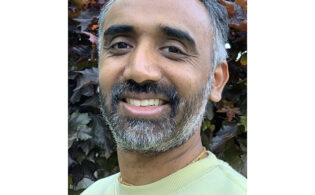Channel 4 CEO Alex Mahon is calling for industry action and new regulations to protect Gen Z audiences from the harms of false information online.
Speaking at a Channel 4 and Royal Television Society event in London, Mahon showcased new research the U.K. broadcaster commissioned into the media habits of viewers 13 to 27 and how they are being impacted by the flood of inaccurate information across social media.
“In 2024, adults spent on average more than 5 hours a day watching video, and 34 percent of that was on social platforms and YouTube,” Mahon said. “For 16 to 27s, that rises to 64 percent.”
Mahon stated that “16- to 29-year-olds are now the loneliest group in society,” according to the Channel 4 study. “For Gen Z, social video has been their primary cultural compass. But it has been individualized. Through personalized feeds, they see not only different information from earlier cohorts and certainly from their parents, they also crucially never see quite the same things as their peers. It’s vital to stress one perhaps obvious fact: They will not revert. Young people will not adopt the behavior of older generations as they age. Just as I will not start going to the shops to buy a physical newspaper, Gen Z will not stop watching YouTube or start getting their information from News at Ten. However, the way Gen Z do get their information is creating immense issues for them. The combination of extended plasticity of views and the personalized information flow has had profound effects…. Gen Z faces growing uncertainty in who and what to trust, struggling to reconcile issues of bias, impartiality and truth in such an information-saturated environment.”
Mahon maintains the U.K. is better positioned than other countries to address this issue. “We have spectacular advantages, given the world-leading regulatory structure that underpins public-service media. The BBC is trusted globally and reaches hundreds of millions of people around the world. Channel 4 has a brand that cuts through to young people and that they still trust. Reuters Institute and EBU evidence proves that in countries with strong regulated public-service media, polarization levels are lower.”
The response to the situation should include shifting how news is delivered, Mahon said. “We have to rapidly change how we make things, where we publish them and how we promote them. PSM needs to accelerate delivery of our news to these platforms where people consume. Young people want their news to be rapid, easy, entertaining and digestible. They want it to be timely, well-made, engaging and accessible. It needs to be in an appealing voice. We need to move from text to video, from long to summary, from our networks to theirs, and to be always entertaining and accessible. All while working to retain impartiality.”
Mahon also called for regulatory action because platforms like TikTok, Meta and YouTube are global and “do not need to take responsibility for what they publish, nor prioritize facts over opinion.”
Mahon continued, “We must start thinking about objective truth and validated news as a public good. We need to ensure they are present on new platforms, rather than see them as compensating for a market failure that we regulate for on the old platforms.”
Mahon suggested three solutions: a trustmark as an indicator of accuracy; boosting the algorithmic surfacing of public-service media on social video platforms; and training AI models with validated public-service content.
“As our work shows, Gen Z in this country are a brilliant, vibrant, creative, bubbling mass of ideas and deep beliefs. Their collective genius is our future, but Britain’s need for them has to be matched by a Britain they can trust in. So, please, leave here asking yourself what you can do to keep us together with them in one cohesive, shared society. And I will end by asking you to face these two questions again: If not us, who? If not now, when?”






